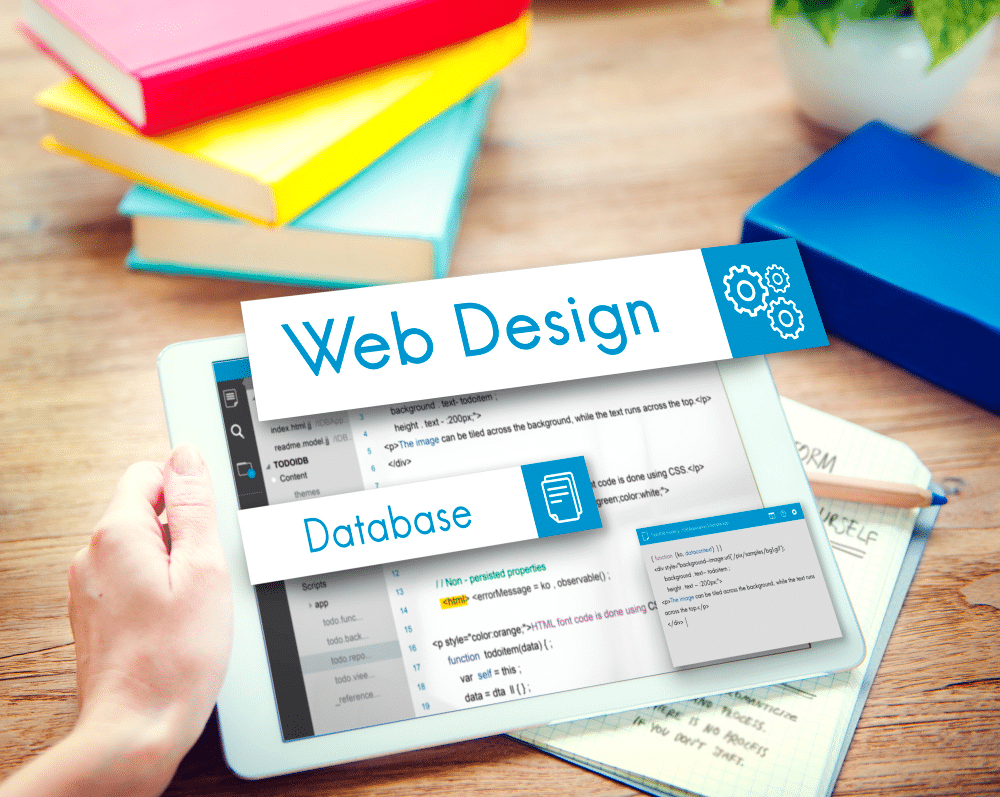
In today’s fast-paced digital landscape, a robust online presence is more crucial than ever, especially in a technologically advanced country like New Zealand.
With a high internet penetration rate and a digitally savvy population, businesses in New Zealand face unique challenges and opportunities in terms of establishing a strong digital footprint. A key decision in this journey is choosing the right partner for web design. This decision often boils down to two primary options: a web design agency or a freelancer.
In a nation known for its vibrant entrepreneurial spirit and innovative business environment, choosing between an agency and a freelancer is not merely a matter of preference. Instead it’s a strategic decision that can impact a business’s online success.
Today, we’ll highlight the pros and cons of each option, offering insights that’ll help you make an informed decision.
Understanding Web Design Agencies

A web design agency typically comprises a team of professionals, each specialising in different aspects of web design and digital marketing. These agencies offer various services, from website development to SEO and digital marketing strategies.
Pros of Hiring a Web Design Agency

Hiring a web design agency offers a plethora of benefits, particularly for businesses looking to establish a robust and professional online presence.
Here are some web design agency pros:
1) Access to a Team of Experts
One of the most significant benefits of hiring an agency is the access to a diverse team of professional web designers. Each member brings specialised skills and expertise, covering all aspects of web design and development.
This means clients benefit from the combined knowledge of designers, developers, SEO experts, and content strategists, ensuring a well-rounded and effective online solution.
2) High-Quality Work
With multiple team members who are experts working on a project, the quality of the final product is typically higher than what a single individual might be able to produce.
Agencies have the tools and resources for creating state-of-the-art websites. They incorporate the latest design trends, technologies, and best practices to ensure the website not only looks good but also performs well.
3) Efficiency and Reliability
Agencies operate with a level of professionalism and efficiency that ensures projects are completed on time and to a high standard.
They have tried-and-tested processes in place for project management, design, development, and testing, reducing the likelihood of errors and delays.
4) Comprehensive Service Offering
Web design agencies often offer a complete set of services, from initial design and development to ongoing maintenance and digital marketing.
This holistic approach means businesses can have all their digital needs met under one roof, ensuring consistency and convenience.
5) Scalability
Agencies have the capacity to scale their services up or down based on the project’s requirements. Whether it’s a small website refresh or a large-scale e-commerce build, an agency can allocate the appropriate resources and expertise to meet the specific needs of the project.
6) Long-term Support and Development
Many web design agencies offer long-term support and maintenance, which is crucial for the ongoing success of a website. They can provide regular updates, security checks, and enhancements, ensuring the website remains current and functional over time.
7) Professional Project Management
With dedicated project managers, agencies give a smooth process end-to-end. They keep the project on track, manage timelines, and serve as the main point of communication. This helps them provide regular updates and address any concerns that may arise.
8) Understanding of the Bigger Picture
Agencies are adept at seeing how a website fits into a business’s broader marketing strategy. They can integrate the website with other marketing initiatives, ensuring a cohesive and consistent brand message across all channels.
So, hiring a web design agency brings a level of expertise, professionalism, and comprehensive service that can be pivotal for businesses looking to make a significant impact online. The collaborative approach of an agency ensures that every aspect of the web design and development process is handled expertly.
Cons of Hiring a Web Design Agency

While web design agencies offer many advantages, there are also certain drawbacks that businesses should consider before making their choice.
Here are some of the key cons:
1) Higher Costs
One of the most notable disadvantages is the cost. Web design agencies typically charge higher rates than freelancers. This is due to their larger overheads, the breadth of services they offer, and the expertise they bring.
For small companies or startups with restricted budgets, these costs can be a significant barrier.
2) Less Flexibility
Agencies, with their established processes and larger teams, might not always provide the level of flexibility and customisation that a freelancer can. Their approach, often structured and methodical, might not align with clients seeking a more adaptive and spontaneous design process.
3) Potentially Longer Turnaround Times
Due to their size and the volume of work they handle, agencies might have longer lead times and project turnaround times. The need to coordinate among various team members and adhere to internal processes can add to the project timeline.
4) Risk of Standardised Solutions
There is a risk that agencies, especially larger ones, might resort to a one-size-fits-all approach. Some agencies might apply similar strategies and designs across projects, which could lead to a lack of uniqueness in the final product.
5) Possible Communication Challenges
In an agency setting, clients may not always communicate directly with the person working on their project. Instead, they might interact with account managers or project managers, which can sometimes lead to communication gaps or delays in relaying specific requests or feedback.
6) Overwhelming for Small Projects
For smaller projects or businesses, the breadth and depth of services offered by an agency can be overwhelming and unnecessary. A freelancer might be more suited for projects that require a more straightforward and focused approach.
7) Potential for Less Personal Investment
In an agency, a project is typically one among many being handled simultaneously. This might lead to a perception of less personal investment in the success of each individual project compared to a freelancer. Freelancers are more personally invested in their work.
In summary, while web design agencies offer a range of benefits, their higher costs, the potential for less personalised service, and longer turnaround times are factors that businesses need to weigh carefully.
Understanding Freelancers in Web Design

Freelancers are self-employed individuals offering their expertise in web design. They are often specialists in specific areas and offer more personalised services.
Pros of Hiring a Freelancer
Here are some pros of hiring a freelance web designer for your website:
1) Cost-Effectiveness
One of the primary advantages of hiring a freelancer is their affordability. Freelancers usually operate with lower overhead costs compared to larger agencies. This means they can offer even more competitive rates.
Thus making them an ideal choice for businesses with tighter budgets or those looking to allocate resources elsewhere.
2) Flexibility and Personalisation
Freelancers are known for their adaptability. They can quickly respond to specific client needs and preferences, providing tailored solutions that fit unique project requirements. This level of personalisation often results in a product that closely aligns with the client’s vision.
3) Direct Communication
Working with a freelancer allows for direct and straightforward communication. Clients can speak directly to the person working on their project, leading to clearer understanding, quicker decision-making, and fewer chances of miscommunication.
This direct line of contact often ensures that any changes or problems can be addressed promptly.
4) Dedication to the Project
Freelancers often work on a smaller number of projects simultaneously, allowing them to dedicate more time and attention to each task. This focused approach can result in higher-quality work and a more personalised service. This is because the freelancer is deeply invested in the success of each project.
5) Rapid Turnaround Times
Due to fewer bureaucratic processes and a streamlined work approach, freelancers can often complete projects more quickly than larger agencies. This efficiency is particularly beneficial for businesses with tight deadlines or those looking to launch a project swiftly.
Hiring freelance web designers offers benefits such as cost savings, personalised service, direct communication, dedicated focus, and faster project completion times. These factors make freelancers a compelling choice for businesses seeking a more bespoke and agile approach to web design.
Cons of Hiring a Freelancer

Now that you know all the pros of hiring a freelance project manager for your website, let’s look at some of the cons.
1) Limited Skill Set
Freelancers typically specialise in specific areas of web design and may not possess a broad skill set that covers every aspect of the project. This limitation can be a drawback for projects requiring a diverse range of expertise, such as integrating complex functionalities or advanced SEO strategies.
2) Scalability Issues
When it comes to handling large-scale or complex projects, freelancers might face challenges. Their capacity to manage multiple aspects of a project single-handedly is often limited compared to an agency with a team of specialists.
This can affect the scope and scale at which a project can be executed.
3) Reliability Concerns
While many freelancers are highly reliable, the nature of freelance work, which often involves juggling multiple clients and projects, can sometimes impact their consistency and adherence to deadlines. This variability in reliability can be a concern for businesses with strict timelines or those requiring a high level of dependability.
4) Limited Support
Post-completion support is another area where freelancers might fall short compared to agencies. They may offer less comprehensive ongoing maintenance and support services. This can be a crucial factor for businesses that require continuous updates and troubleshooting after the project launch.
5) Risk of Overcommitment
There’s a risk that a freelancer might overcommit to multiple projects, leading to stretched resources and potential compromises in the quality of work. Unlike agencies that can delegate tasks among a team, freelancers have finite time and resources, which can become a limiting factor in their service delivery.
While hiring a freelancer offers several benefits, it also comes with limitations, such as a narrower range of skills, scalability issues, potential reliability concerns, limited post-launch support, and the risk of overcommitment. These factors are important to consider when deciding if a freelancer web designer is the right fit for a specific web design project.
Making the Right Choice

When faced with the decision of hiring a web design company or a freelancer, you have to think of several key factors that align with your business’s specific needs and objectives.
Making the right choice depends on a careful assessment of these elements:
Project Size and Complexity
Evaluate the scope and complexity of your web design project. Larger, more intricate projects might benefit from the diverse skill set and resources of a professional web design agency. In contrast, smaller or less complex projects could be effectively handled by a freelancer.
Budget Constraints
Your budget plays a significant role in this decision. Agencies typically charge more due to their broader range of services and expertise, whereas freelancers are often more cost-effective. Align your choice with the financial resources available for the project.
Timeline and Flexibility
Consider your timeline and the flexibility required for your project. If you need a quick turnaround, a freelancer might be able to provide faster delivery. However, for projects requiring extensive collaboration and coordination, an agency might be more suitable.
Level of Expertise Required
Assess the level of expertise your project demands. Agencies often have teams with varied specialisations such as search engine optimization etc., which can be beneficial for complex projects requiring multi-faceted skills.
Freelancers, while experts in their niche, might have limitations in offering a wide range of services.
Long-Term Engagement and Support
Think about the long-term requirements of your project. If ongoing support, maintenance, and updates are needed, web design agencies tend to be better equipped to offer these services. Freelancers may provide less comprehensive post-launch support.
Communication and Personalisation
Consider the importance of direct communication and personalised service. Freelancers offer a more personalised approach and direct communication lines, which can be advantageous for customised project requirements.
Reviewing Portfolios and Testimonials
Before making a decision, thoroughly review the portfolios and client testimonials of both agencies and freelancers. This will give you insights into their past work, quality of output, and client satisfaction levels.
Making the right choice between a web design agency and a freelancer involves a careful evaluation of your project’s size, budget, timeline, required expertise, long-term needs, and the value of personalised service and communication. Weighing these factors will help you determine the best fit for your specific web design requirements.
Conclusion

Choosing a web design agency or a freelancer is a significant choice that depends on your business goals and project requirements. Whether you prioritise the comprehensive service of an agency or the personalised touch of a freelancer, ensure the decision aligns with your business strategy.
Furthermore, it’s essential to remember that this decision not only influences the immediate outcome of your web project but also impacts the long-term digital presence and branding of your business.
The right web design partner, whether an agency or a freelancer, should understand and resonate with your brand vision, target audience, and market positioning.
As you navigate this choice, consider the potential for a lasting partnership that can evolve with your business, adapting to future challenges and opportunities in the digital landscape. Ultimately, the key is to create a balance between quality, cost, and effectiveness, ensuring that your selection propels your business forward in an increasingly digital world.
